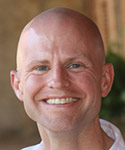Today’s mainline denominations are doing plenty of fighting. Some of the disagreements break into the news and public consciousness, while others only affect the faithful.
All of this fighting is deeply unsettling, but it also reflects what one observer calls “a seismic shift” in the denominational terrain.
“The denominational level, whether it’s the middle judicatory or national level, is going through a seismic shift, and the whole idea of denominationalism is going through a very profound [cultural] shift,” said Susan Nienaber, an Alban Institute consultant specializing in church conflict. “[Denominations] have been shaken -- and not just in terms of the highly controversial issues that have been publicized.”
Challenges of this magnitude are felt acutely by denominational leaders.
“Conflict is a huge test of our capacity to stay engaged in the immediate challenge but not give ourselves over to it,” said the Rev. Dr. Jim Antal, president and conference minister of the United Church of Christ’s Massachusetts Conference. “When somebody’s mad as heck at you, and they’re coming at you with words and emotions, most of us get riled up, our primitive emotions get activated. We end up taking the bait, getting combative.”
If, on occasion, conflict brings out the worse angels of our natures, sometimes conflict also can be constructive. Even those caught in denominational discord -- conflicts so deep and emotional that sometimes people can’t even agree on what the disagreement is really about -- see conflict as an opportunity for transformation. It’s not easy. But some denominational leaders who have weathered -- or are weathering -- conflict and controversy say that positive change can emerge.
How can leaders in conflict-riven systems help achieve resolution, transformation and even reconciliation?
Rooted in the tradition
Of course, faith fights and doctrinal divisions are as ancient as Christianity itself.
“We sometimes in our day think conflict in the church is new, but you only have to go to the New Testament to see conflict in the church,” said Bishop Chris Epting, the ecumenical officer for the Episcopal Church.
Even in modern conflicts, ancient practices can offer help. Confronted by challenges and their collateral damage, many denominational leaders turn to conflict resolution or conflict management strategies, with varying degrees of success. But real transformation -- as opposed to mere management -- begins with work on the individual level, said the Rev. Dr. Marcia Mount Shoop, who serves as a moderator of the Presbyterian Multicultural Network.
Questions to consider
Questions to consider:
- When a topic gets hot in a meeting, how do you respond? What questions do you ask yourself and others about what might be at stake in the conversation?
- What makes a conflict destructive or constructive?
- What are the leadership “moves” that move a conflict toward a transformative resolution?
- How do you determine what the deeper issues are in a conflict? How do you respond to the “presenting issue” as well as the deeper one?
“It’s certainly a matter of deep trust,” she said. “This kind of transformation asks for you to show up with your whole self. That means being vulnerable. That is an act of deep, deep trust with God, so I always start with prayer.
“I often invite congregations and governing bodies…I invite them to spend time together quiet with open hands, asking ‘God what are you doing here, and what do you want to do with me?’” Mount Shoop said. “And I find, especially with people who are accustomed to having a lot of power and decision making, people accustomed to being part of groups with lots of power in our society, this is very difficult.”
When conflict hits, leaders also should seek corporate discernment, Epting said. Along with the interplay of Scripture, tradition and reason, denominational leaders must collectively seek God’s guidance and try to sense the historical momentum on an issue.
“One person cannot hear God all by themselves, so you draw the circle wider and wider. In our church that would be going to the dioceses, national church, ecumenical church and internationally to consider what other churches are doing,” he said.
Such vulnerability helps unlock conflict’s transformative potential, so denominational leaders can adopt appropriate self-scrutiny and internal critique.
“Sometimes conflict forces us to see things about ourselves that we had been failing to see,” said Bishop Jeffrey N. Leath of the African Methodist Episcopal Church. “A crisis can become an opportunity for us to assess: What did we do to contribute to the crisis?”
“We tend to be the David who has not yet heard from Nathan instead of being the Nathan who is speaking to ourselves.”
Choose to heal
Trials, tribulations and turmoil can lead to transformation -- if an organization is willing to “shapeshift” or continuously adapt and change, Nienaber said.
Four years ago, she studied 12 congregations identified by denominational leaders as having been transformed in the wake of “big-league tragedies and conflict,” such as sexual misconduct, pastoral leadership, suicide and natural disasters. She presented her research in an article called “Leading into the Promised Land: Lessons Learned From Resilient Congregations.”
In findings Neinaber said are instructive to denominational leaders, she discovered that transformation is not attained by the “problem-focused, deficit-based language and theories” so often employed by people rocked by conflict.
Rather, “At the core of [the resilient churches’] success in bouncing back from their conflict, I believe, lies a simple yet profound decision: They chose to heal. They made an intentional decision to get healthy and focused their efforts toward that goal. They saw an opportunity in their crisis, and they acted upon it.”
Leath said leaders need to seize the opportunity to help move beyond the crisis.
"The chances of transformation, I think, are minimal if there is no followup by the mentoring senior administrative person who is guiding, hopefully, through a process of transformation,” he said. “The leaders are responsible for bringing that to pass."
Often the “presenting dispute” is rooted in a deeper, less immediately obvious conflict institutional leaders must grapple with.
Currently, the UCC is wrestling with significant restructuring of its national governance structure, “which on the face of it doesn’t seem like a big deal,” said the Rev. John H. Thomas, who stepped down in June from his post as UCC general minister and president. “But it is a big deal.”
What has emerged as the deeper issue: the anxieties of the racial minorities who had equated equality with the number of seats in the governing body. They feared a smaller board and more unified governance structure would limit their presence and the progress that’s being made, Thomas said.
At the General Synod this summer, the church identified that its priority in moving toward single governance was reconciliation of those who feel excluded, and the denomination now is engaging in a “sacred conversation on race.”
‘It feels like the cross’
On the way to transformation, hope resides in a renewed theological perspective.
“God’s power is so unique and distinctive that in every difficulty, in every hardship, in every difference that we encounter that really challenges us, there is this offer that God makes for our lives to be enriched, for us to be transformed, for the world to be a better place,” Mount Shoop said.
“It’s not that I believe God is visiting suffering on us to teach us a lesson,” Mount Shoop said. “I think [with] God in every situation -- sometimes especially in contradictions and conflict -- there’s a healing opportunity.”
Healing an organization demands more than gaining mass acquiescence to a black-and-white assessment of right and wrong.
“Paul says we see through a glass darkly…we don’t always fully understand and grasp even the scriptural mandates,” Epting said. “We can rely on the Spirit to guide us, but that’s not apparently infallible because even faithful people can disagree.”
As he started in the work of the priesthood fresh out of seminary, Epting entered a church embroiled with the debate over women preachers. It was a tough fight because when it came to women preachers, “You can find texts on both sides. You can find history on both sides,” Epting said.
Epting was in favor of the ordination of women as priests. His stand on the issue wasn’t without its consequences. “In the middle of these things, it feels like the cross. It’s painful,” he admits. “I had people I’ve known since my childhood who wrote me off as a heretic.”
Looking back, he said the conflict proved transformative. For one thing, it forced his denomination to go back to its roots and to ask: What is a priest? Together they affirmed that “women have all the capabilities for doing that [ministry],” Epting said.
In the early days, women often argued it was their right to enter the priesthood, he said. But Epting said he found it more persuasive when women said they were called to the office.
“We could then begin to test that calling as we were testing other [candidates for priesthood],” he said, as part of their established traditions and ordinances. “We don’t think we’ve changed the office of being a priest or pastor or preacher. We’ve simply opened it up to the other half of the human race because we believed God was calling women to that position.”
Discernment and discussion
Often, the path of least resistance is to avoid discussing and addressing difficult topics. That’s also the course of action that can turn conflict destructive, particularly for denominational leaders, Thomas said. “The reasons you have conflict are first, some people disagree. Second, a lot of the church isn’t focused on that particular issue, so [a move on the denominational level] appears as a political pronouncement.”
Despite the temptation to defuse conflict, leaders do well to avoid acting as gatekeepers barring engagement with combustible topics, Thomas said. “When people just avoided it, it allowed things to fester and then allowed unhealthy interventions from people with unhealthy agendas.”
Like many denominations, the UCC has grappled with questions of human sexuality -- one of the most fraught issues of the day.
Although the UCC’s 2005 General Synod decision to promote marriage equality for gays and lesbians was contentious, it “was part of a long trajectory of reflection, discernment, decisions,” he said, so it wasn’t an issue that appeared out of the blue.
Inviting gay and lesbians into the church, affirming their ordinations, working to protection them against violence -- all of these actions had been taken by the UCC long before the vote on marriage, he said.
While Thomas found the experience to be transformative, it was not without cost: The United Church News has reported that during the 20 months following that decision, 163 UCC churches officially left the denomination, with 90 of them citing support for same-gender marriage as the reason.
Ultimately, the question becomes not who wins and who loses, but how has this conflict transformed the community and allowed its members to live deeper, richer lives in Christ? Have its members made the journey from conflict to reconciliation?
“When pastors and leaders said up front, ‘Let’s confront that and look at it head on. Let’s convene and talk,’ people didn’t necessarily end up agreeing and feeling happy, but they discovered a strength in the church,” Thomas said.
“It wasn’t as vulnerable to fragmentation as they feared, but rather there was a community of faith that could survive disagreement,” he said. “There was a community they had not experienced or claimed before.”







